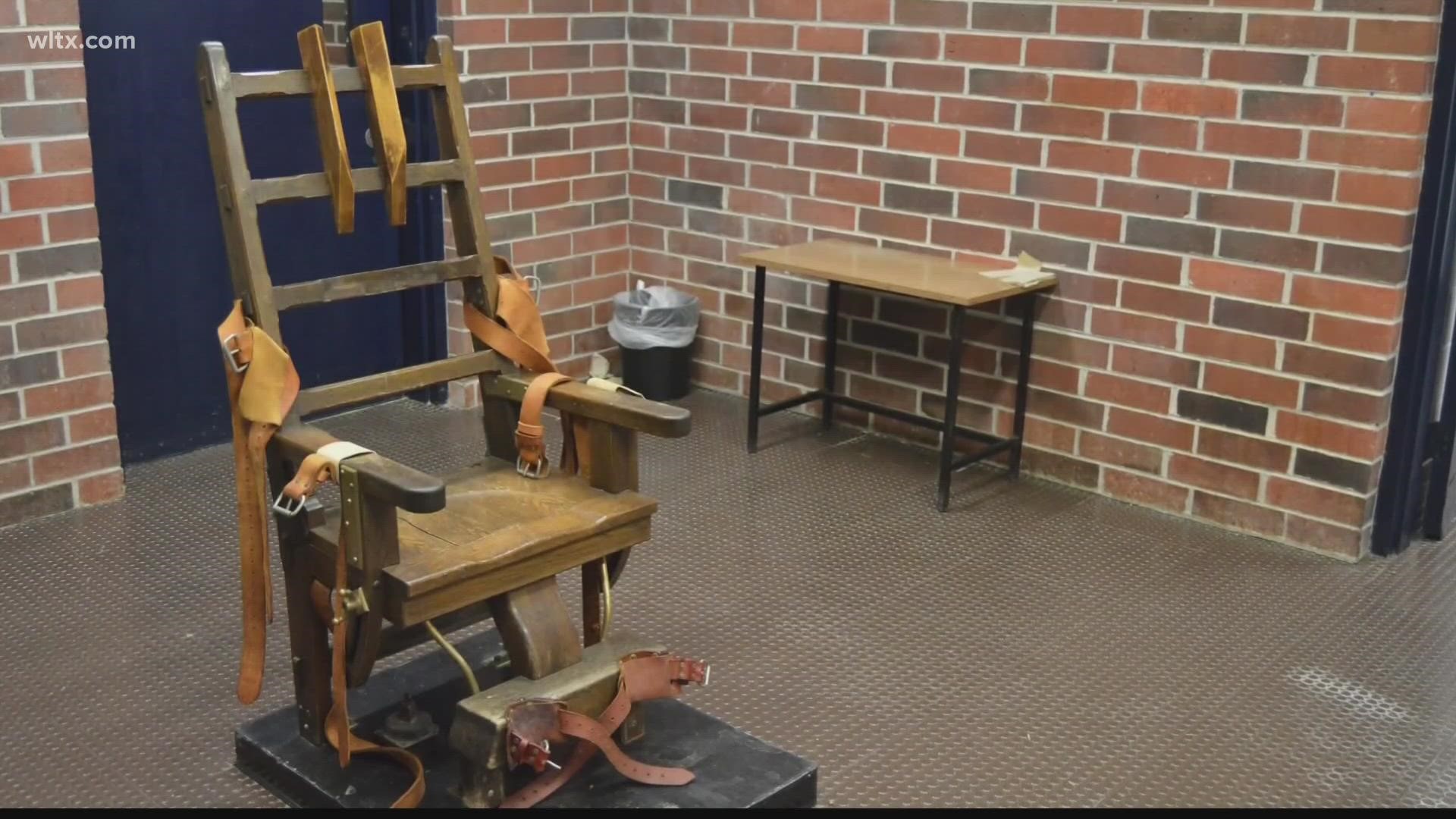COLUMBIA, S.C. —
The South Carolina Senate passed on Wednesday a law shielding the identity of pharmaceutical companies providing lethal injection drugs for state executions.
The move marks lawmakers' latest effort to resume capital punishment in a state that has gone nearly 12 years without administering the death penalty.
South Carolina has been unable to purchase the drugs necessary for lethal injection since the state's batch expired in 2013. Officials have largely blamed the inability to replenish the supply on the lack of a so-called “shield law." Republican leaders have said pharmaceutical companies fear public pressure from activists and therefore will not sell to states that do not conceal their identities.
With Wednesday’s 39-5 bipartisan vote, Republican Sen. Greg Hembree hopes that will soon change.
“If you believe that the condemned should have the option of choosing lethal injection as a method of execution, you should support this bill,” said Hembree, a former prosecutor and lead sponsor of the measure.
Republican Gov. Henry McMaster signed a 2021 law forcing people on death row to choose between the electric chair or a newly formed firing squad in hopes the state could restart its executions after the involuntary pause.
The law has been put on hold amid a legal challenge from four condemned prisoners. In the latest development for that case, the Supreme Court of South Carolina ordered the South Carolina Department of Corrections to provide more information regarding its attempts to acquire lethal injection drugs.
Throughout Wednesday's debate, lawmakers’ interest in accountability ran up against their interest in resuming the death penalty. The bill bars courts from compelling any information identifying members of the execution team during discovery, subpoena or other legal processes.
Democrats expressing concern about botched executions offered amendments that would have allowed courts to order identifying information “upon a showing of good cause.”
“There’s got to be some window to where if something goes wrong, somebody will have to answer for it to somebody,” Democratic Sen. Thomas McElveen said.
Hembree expressed openness to finding a middle ground. But he said the inclusion of exceptions for “good cause” has prevented other states from obtaining lethal injection drugs even after enacting similar laws.
“If we adopt this amendment, we need to not adopt the bill," Hembree said. "Because it will not lead to the availability of the drugs necessary to carry out the executions.”
Under the proposal, the South Carolina Department of Corrections is required to share autopsy results with the attorney for anyone killed by lethal injection. Any drugs must be approved by the U.S. Food and Drug Administration, and pharmacists can supply and manufacture lethal injection drugs without a physician’s prescription.
The measure would require the qualifications of any medical professionals involved in the execution to be published. It also requires that medical personnel be fully licensed and certified without any documented professional misconduct.
Rev. Hillary Taylor said she was disappointed in the bill's lack of oversight. Taylor, the executive director of South Carolinians for Alternatives to the Death Penalty, rejected any notions that lethal injection provides a “kinder” option for people on death row.
“If South Carolina really cared about humanitarian efforts, they would be using all of this money and effort that they are trying to kill only 37 people in South Carolina — they would use those funds to help victims actually heal and invest in alternatives to the death penalty,” Taylor said.

